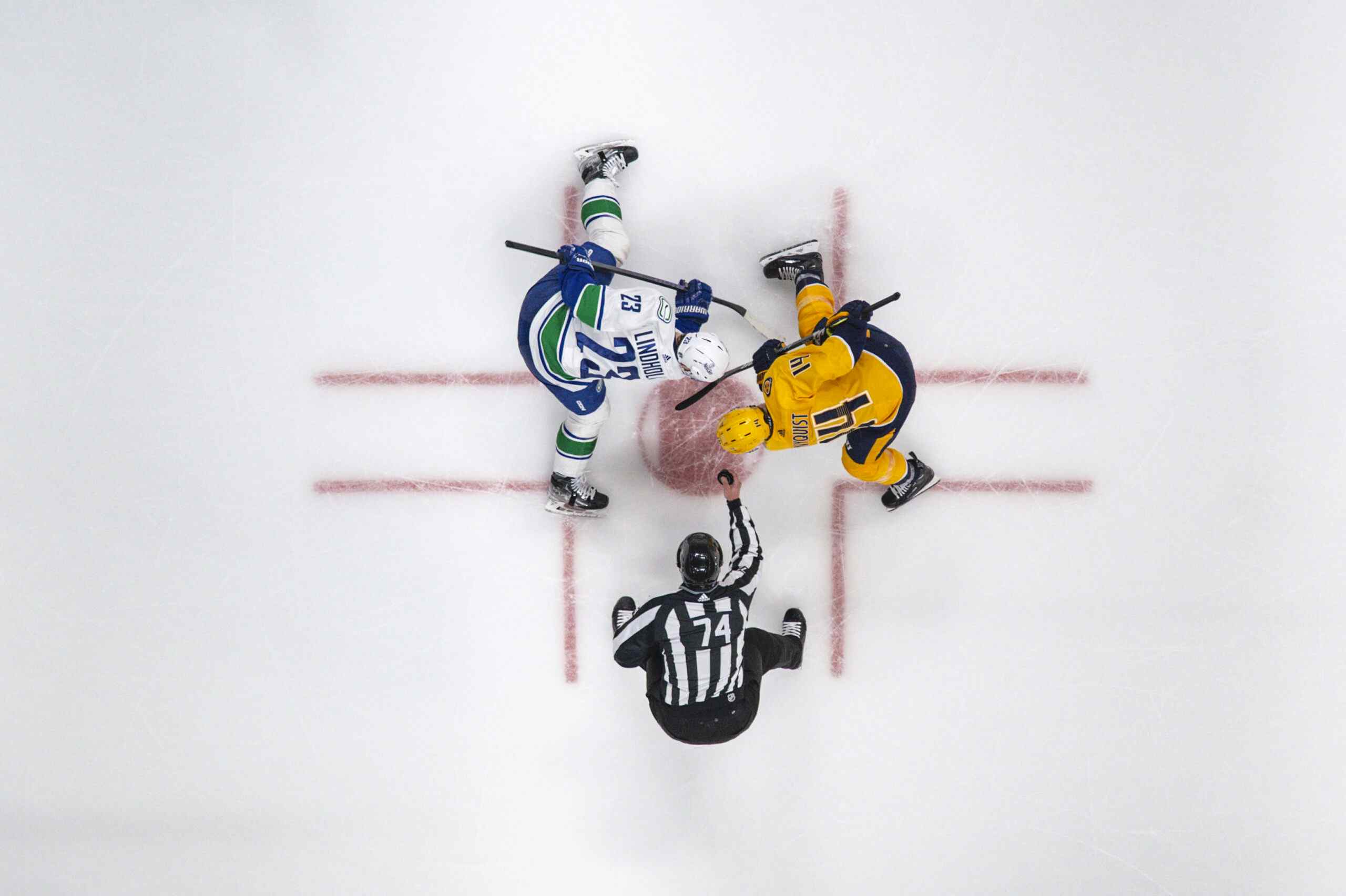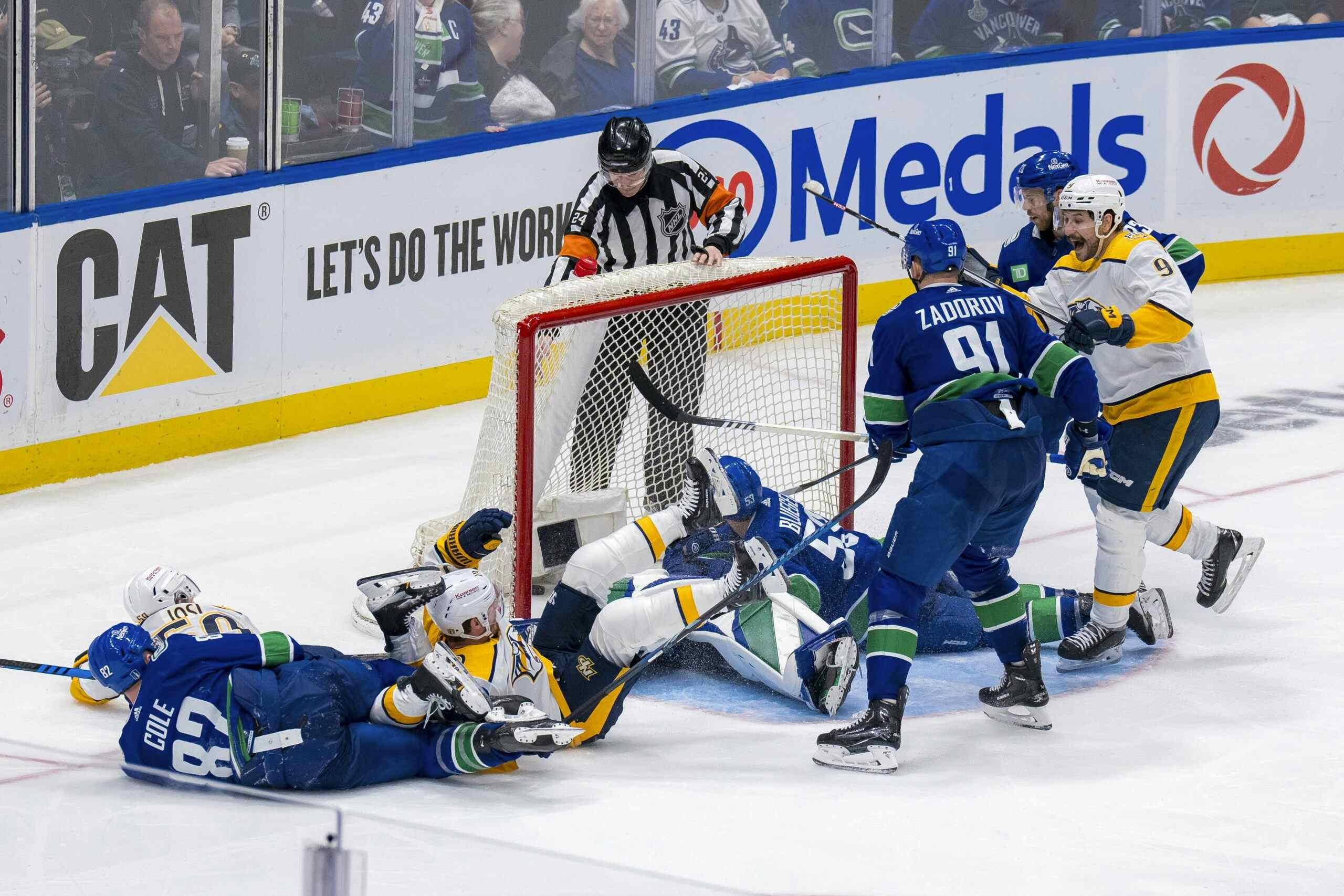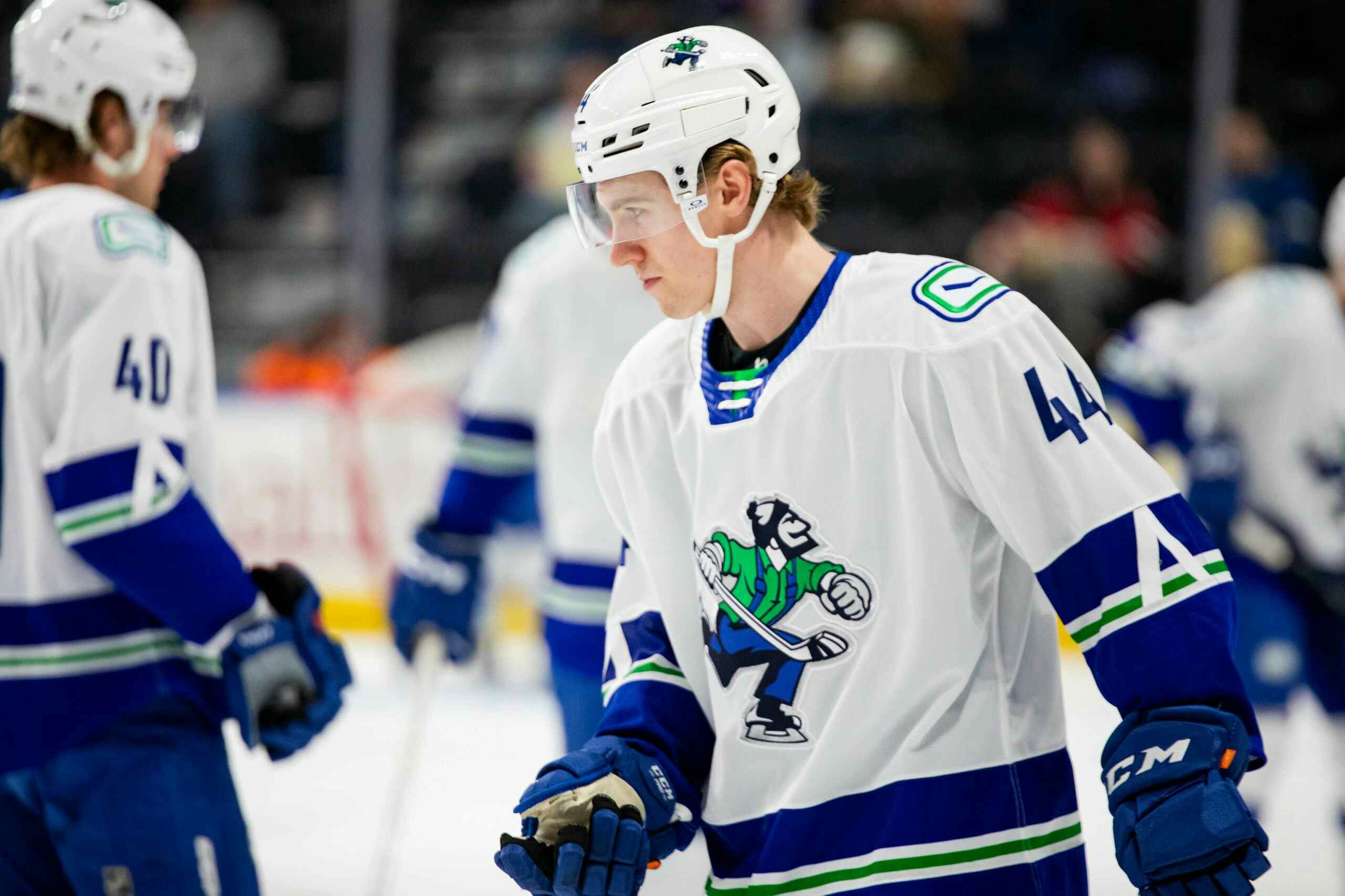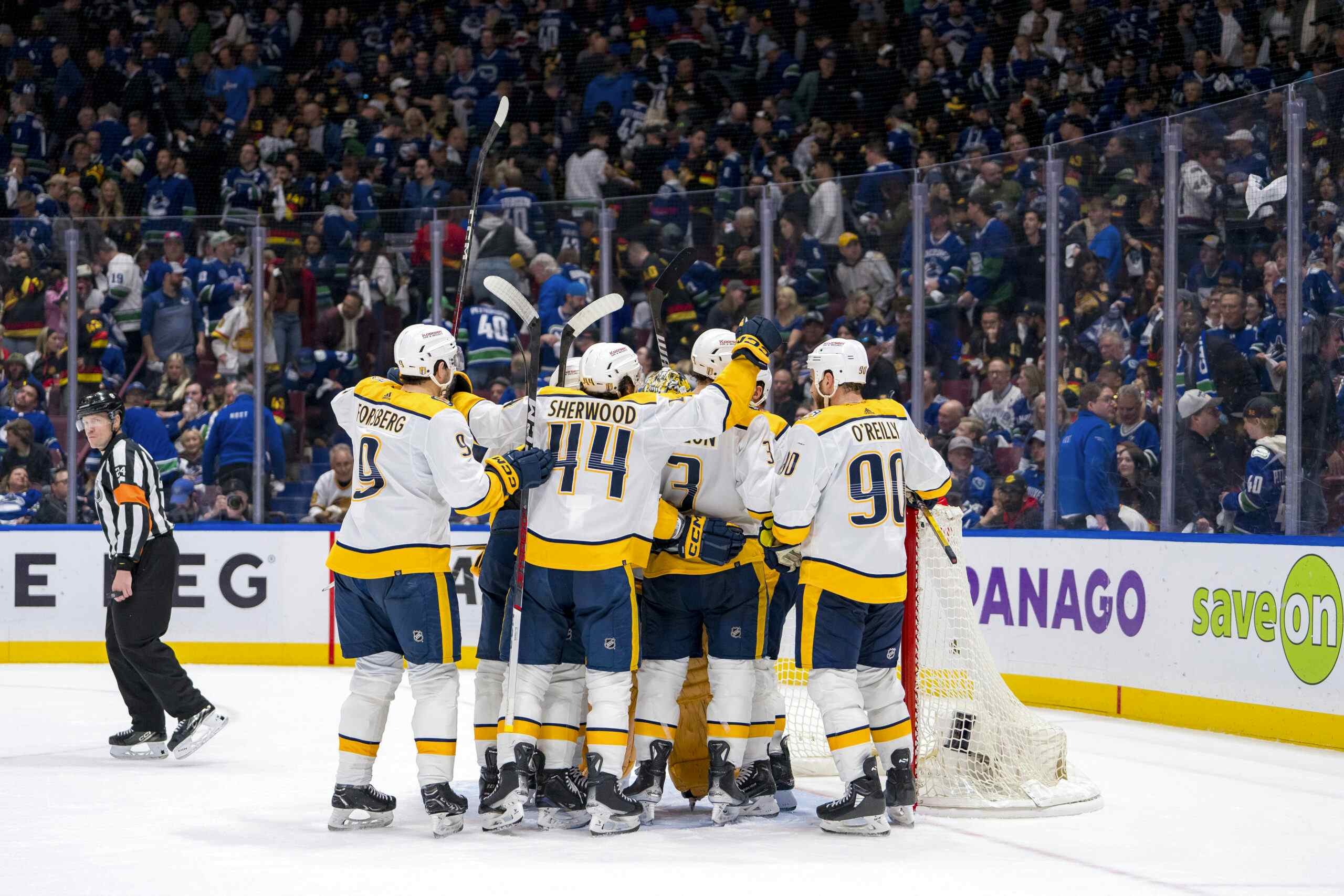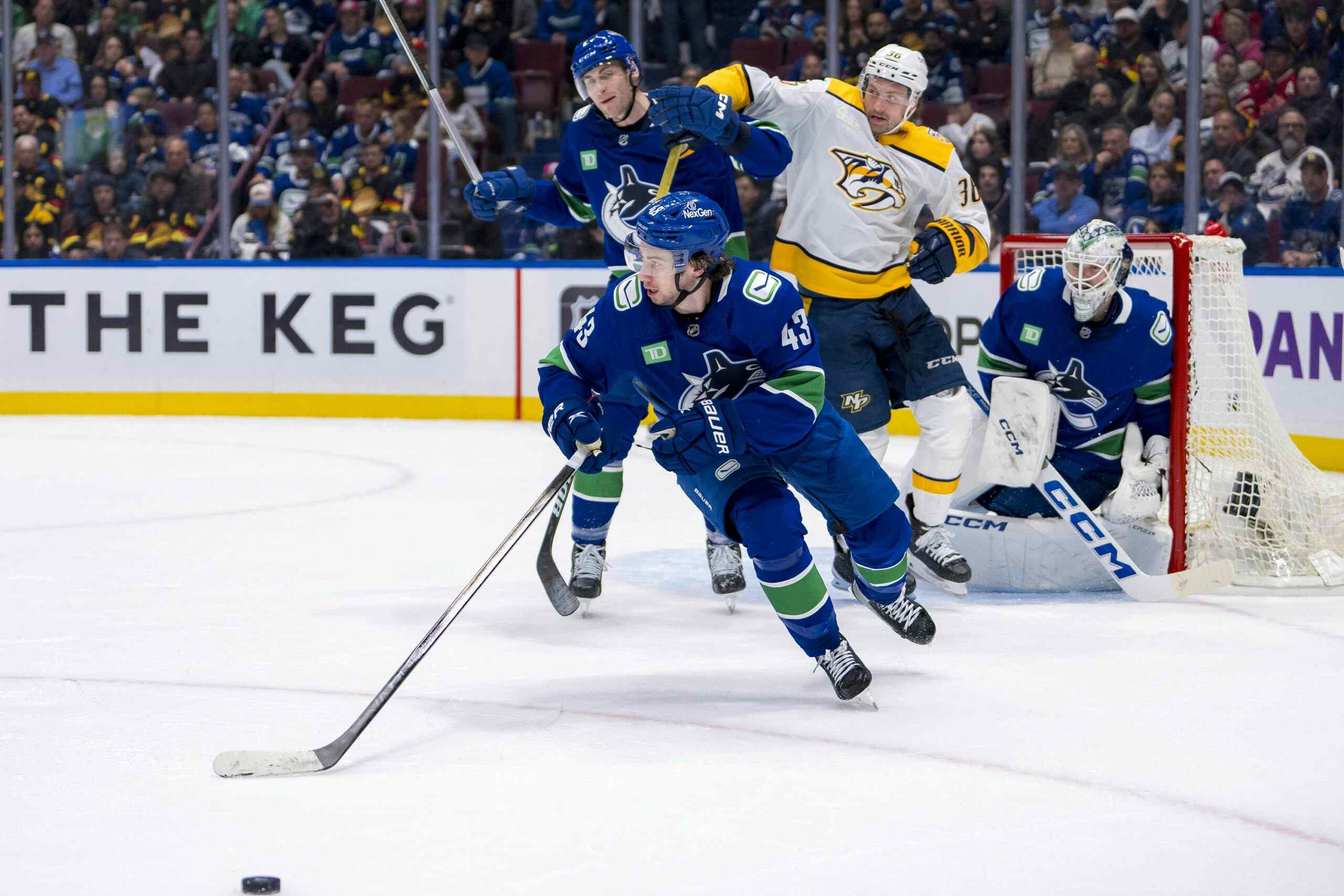The Backup Goalie Market is Pretty Thin You Guys
By Cam Charron
11 years ago
Should the Canucks look into making Dan Ellis a rich man again?
Digging up contract statuses for guys in European leagues is a tough chore, particularly for players who aren’t particularly good. The point of the next few hundred words is to point out that the current range of National Hockey League backup goaltenders is very, very thin. Absent Eddie Lack, out with some sort of lower-body injury, the Vancouver Canucks would be without a backup if they went ahead and traded Roberto Luongo – as most expect them to do – before the season starts.
Here are the options I see: convince a guy like Alexander Auld, Andrew Raycroft, or, if familiarity (particularly familiarity with poor goaltenders) is your thing, Johan Backlund, to opt out of whatever European contract they’re in and bring them over to North America to ride the pine for all but 8 or 9 games behind Cory Schneider.
Back during the shortened 1995 season, the average starting goaltender played 39 games or thereabouts during the 48-game season. We don’t know yet how many games will be played, but it’s reasonable to expect that a backup goalie could start nine games.
One question that ought not be on Mike Gillis’ mind is “can we find a good goalie?” The team has a couple of good goaltending prospects in Lack and Joe Cannata. The question he should be asking are “if I sign a free agent goalie, what does that do to Roberto Luongo’s trade value” and also “is it possible to find a goalie who won’t lose me a game over his nine starts?”
The Trade and the Importance of Timing
Everybody is talking about the potential trade. Where will Luongo go? What is his trade value? Will he bring back a roster player? Why do people think that a $2M penalty in 2020 hurt his value?
The one card Gillis can play to drive up demand for Luongo is the “we don’t actually need to trade him, we’re happy with two good goalies” card. That won’t fly in the 2013-14 season with the salary cap, nor will it fly in the 2013 season when Luongo and a newly-re-signed Cory Schneider only get 24 starts apiece, plus playoff hot-hand, mostly due to two goalies each believing they deserve to be a No. 1. And for what it’s worth: they are both right.
As soon as Gillis signs another goalie, it signals to the world “hey, we’re about to get rid of a guy we have”. You can’t do anything too complicated with this, although the possibility of having a Wolves goalie up for the first month or so isn’t an issue because they won’t have to play too much. Gillis still has time to complete a Luongo trade and find a backup, but he shouldn’t pull the trigger on that backup just yet.
Dan Ellis
Let’s do some quick math here. Last season, Luongo and Schneider each faced a total of 2038 shots at even strength. Pro-rated to nine games, that is 224 shots. It’s basically at the point in the season when things can either go really really great (Joey MacDonald had a .927 EV SV% on 261 shots last year, Andrew Raycroft had an .897 EV SV% on 262 shots last year. Both goalies are somewhat equal in real talent).
If we can assume there will be the same amount of goal scoring this season as last (unlikely, but we’ll ballpark the figure), then this goaltender will need 206 saves to break even, while 200 saves would cost the team a full win in the standings. That’s the difference between an .893 EV SV% and a .916 EV SV%, which is totally unpredictable at this point.
Why bring over a cheap goalie like Dan Ellis? Because you’re negotiating from a position of strength. I have no idea why Ellis didn’t go to Europe to find full-time work, unless he wasn’t holding out the last shred of hope that he could one day make it as an NHL goaltender. Maybe you want consistency, not awful.
Here are Dan Ellis’ recent numbers:
| Shots Faced | EV SV% | |
|---|---|---|
| 2010 | 699 | 0.921 |
| 2011 | 855 | 0.905 |
| 2012 | 156 | 0.923 |
They aren’t spectacular. His EV SV% numbers over the last three years are a below replacement-level .913. That is equal 205 saves. That’s fine.
A veteran
Head to the “UFA” section on CapGeek. You’ll find a listing for four old goaltenders. Dwayne Roloson, 43, Brent Johnson, 35, Ty Conklin, 36 and Marty Turco, 37.
Here are their stats in the last two years:
| Saved | Faced | |
|---|---|---|
| Ty Conklin | 0.898 | 795 |
| Brent Johnson | 0.912 | 762 |
| Dwayne Roloson | 0.913 | 2164 |
| Marty Turco | 0.901 | 715 |
About all we’ve learned here is that Dwayne Roloson can’t be a starter. There’s no guarantee a veteran like Conklin, Johnson or Turco would be a much better or worse option than Dan Ellis. There’s no surefire backup in the crowd, not even Johnson or Conklin, longtime journeymen backup goaltenders, who are moreso past their prime and playing below replacement level of about .916.
I do remember that the Canucks gave Brent Johnson a PTO coming out of the last lockout and never signed him. He wound up in Washington, stopping 539 of 584 for a .923 EV SV%. The Canucks held on to Alex Auld, who stopped 1248 of 1361 for a .917 EV SV%, and fell off significantly down the stretch because the team didn’t have a backup they could trust, despite trading for Mika Noronen.
Anyway, Noronen is off the table now, Johnson is as good an option as any, and Dwayne Roloson probably isn’t, but who knows? It is literally impossible to predict how goaltenders do in small samples, let alone a full season. Either one of the options above or below, for all I know, shuts the door and plays like an all-star over 224 shots. The real question is, after two years playing in the same state as Miami Heat shooting guard D-Wade, is he not legally required to change his name to Dwyane Roloson?
A Wolves goalie
Matt Climie has some NHL experience:
| Shots Faced | EV SV% | |
|---|---|---|
| 2010 | 70 | 0.929 |
| 2011 | 34 | 0.882 |
| 2012 | 12 | 0.917 |
| Career | 116 | 0.914 |
Not all that much, but he’s also proven to not be totally useless at the NHL level. He would also equal about 205 saves. Sure, his AHL save percentage is an acceptably average .915, which isn’t better or worse than in years past. It’s just “different” and it’s hard to make any sort of decisions over 224 shots because the margin between success and unsuccess is like four shots. Another wrinkle is that the Canucks would need to sign Climie, as his current contract is with the Chicago Wolves.
Joe Cannata would be fun to bring up. He’s had six professional starts this season in both Chicago and Kalamazoo, has put up somewhat decent numbers in the AHL and poor ones in the ECHL, but it would be a wonderful, almost Canadian Football League-esque story, where a rookie comes up despite little experience to play in the show.
Conclusion
There’s really nothing to conclude. The UFA market for goalies is pencil-thin unless you want to negotiate a transfer agreement out of Europe, those at home are mediocre and whoever gets into the role of Canuck backup probably won’t have to face a lot of shots.
Somebody give Chris Levesque a call. Until Läck is bäck, anyway.
Recent articles from Cam Charron

